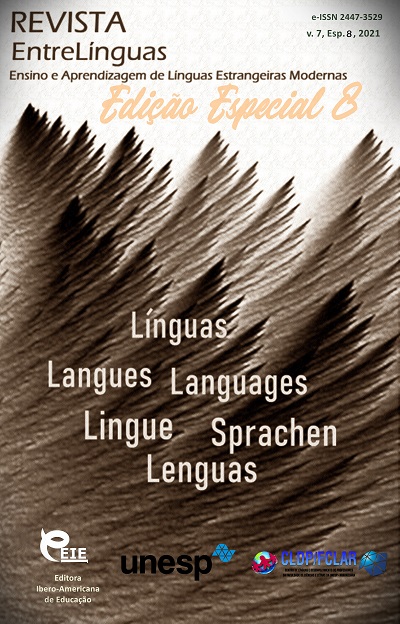The problem of subjective freedom in political communication
DOI:
https://doi.org/10.29051/el.v7iesp.8.16352Keywords:
Freedom, Political communication, Discource, Moral, Hannah Arendt, Roger Berkowitz, Isaiah BerlinAbstract
The paper is aimed at studying political communication as a factor of formation of subjectivity. The initial premise is the idea that perverse restrictions on freedom are rooted in infosphere, characterized by the panoptic nature of human being and the ethical uncertainty of the use of personal data. In the modern world, the communicative infrastructure is threatened by two interrelated and mutually complementary tendencies: a systematically conditioned reification and a cultural decline (conformist consciousness). The liberation of the individual from traditional dependencies entails his/her removal from moral landmarks and causes the increase of his/her dependence on the system. The notion of universal truth carries danger of totalitarianism, forcing everybody to think and act according to one pattern.
The authors reveal social and ethical foundations of freedom as the basic value, give a phenomenological description of freedom in political communications and determine the conditions of the exercise of liberty in modern society. Arendt’s concept of activity is applied for explaining political communication phenomena.
Downloads
References
Arendt, H. (1972). Civil Disobedience. Crises of the Republic. New York: Mariner Books, 51–102.
Berkowitz, R. (2018). Protest and Democracy: Hannah Arendt and the Foundation of Freedom. Stasis, 1, 36–55.
Berlin, I. (1969). Two concepts of liberty. Four Essays On Liberty. Oxford, England: Oxford University Press, 118-172.
Foucault, М. (1971). L’ordre du discours. Paris: Gallimard, 334 p.
Giddens, A. (1984). The constitution of society: Outline of the theory of structuration. Cambridge: Polity Press.
Gramsci, A. (1971). Prison notebooks. London. Lawrence & Wishart.
Habermas, J. (1985). The theory of Communicative action. V. 2. Boston: Beacon Press.
Habermas, J. (1985). The theory of Communicative action. V. 2. Boston: Beacon Press.
Harwood, W. (2018). The Canary in the Gold Mine: Ethics, Privacy, and Big Data Analytics. XII World ISUD Congress: Philosophy in an Age of Crisis. Book of abstracts.
Marcuse, H. (1964). One-Dimensional Man: Studies in the Ideology of Advanced Industrial Society. Boston: Beacon.
Strauss, D.A. (2003). Why Was Lochner Wrong? [Electronic resource]. Article 24. University of Chicago Law Review, 70(1).
Tajsin, E. (2019). Notes on the International Society for Universal Dialogue. Dialogue and Universalism, XXIX(20, 243-252.
Downloads
Published
How to Cite
Issue
Section
License

This work is licensed under a Creative Commons Attribution-NonCommercial-ShareAlike 4.0 International License.
Os manuscritos aceitos e publicados são de propriedade da Revista EntreLínguas. Os artigos publicados e as referências citadas na Revista EntreLínguas são de inteira responsabilidade de seus autores.
Transferência de direitos autorais – autorização para publicação
Caso o artigo submetido seja aprovado para publicação, já fica acordado que o(s) autor(es) autoriza(m) a UNESP a reproduzi-lo e publicá-lo na EntreLínguas, entendendo-se os termos “reprodução” e “publicação” conforme definição respectivamente dos incisos VI e I do artigo 5° da Lei 9610/98. O artigo poderá ser acessado pela rede mundial de computadores (Internet), sendo permitidas, a título gratuito, a consulta e a reprodução de exemplar do artigo para uso próprio de quem a consulta, desde que haja a citação ao texto consultado. Essa autorização de publicação 328 EntreLínguas, Araraquara, v. 1, n .2, p. 323-328, jul./dez. 2015 não tem limitação de tempo, ficando a UNESP responsável pela manutenção da identificação do(s) autor(es) do artigo. Os artigos publicados e as referências citadas na Revista EntreLínguas são de inteira responsabilidade de seus autores.











